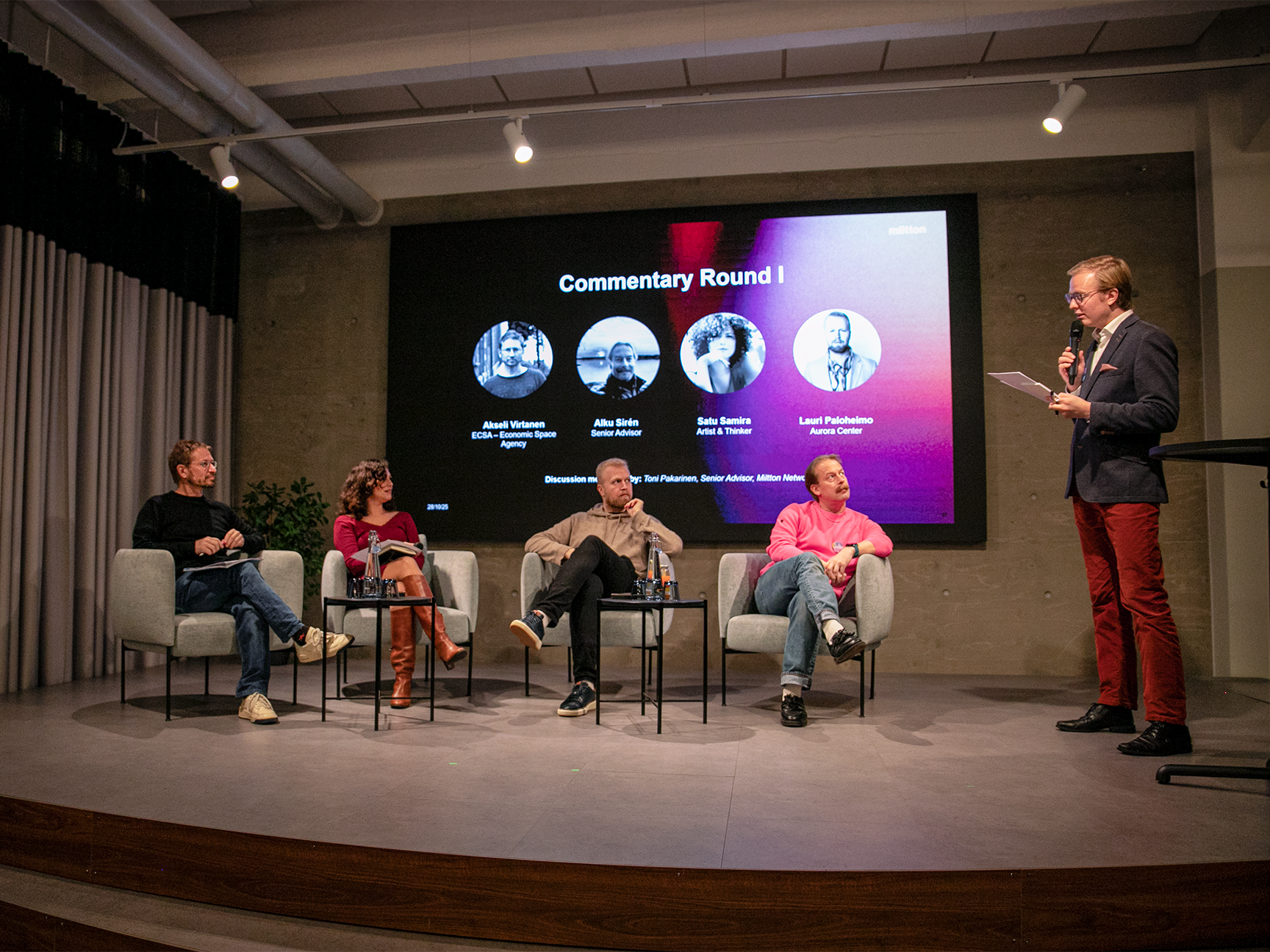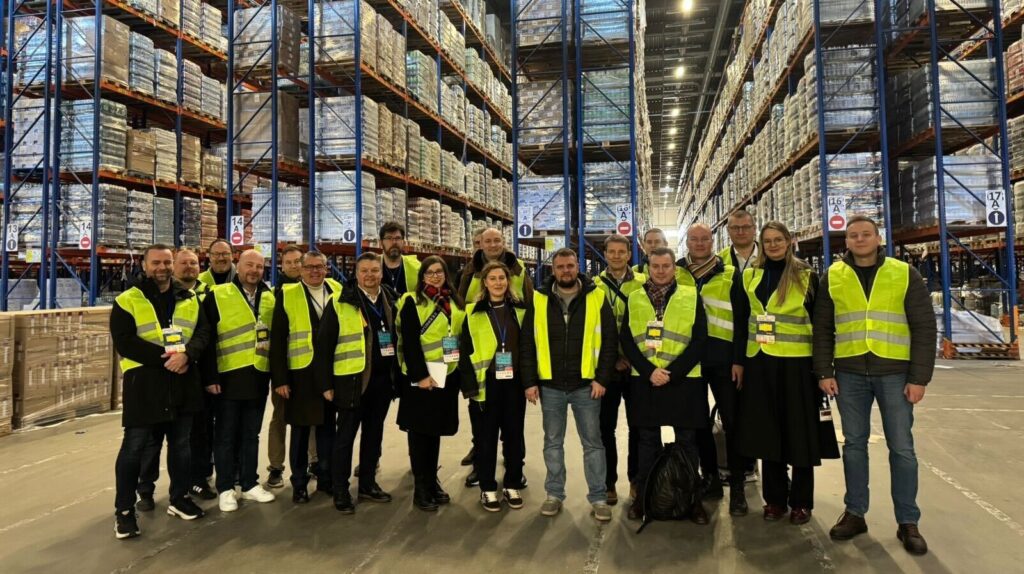Miltton organised a breakfast seminar this week on the future of public governance. Luukas Ilves, a former Estonian Undersecretary for Digital Transformation and current advisor to the Deputy Prime Minister of Ukraine presented his vision paper on how artificial intelligence transforms governance and challenges organisations, decision makers and civil society.
AI-driven bureaucracy is possible – but it must be value-based, transparent and accountable.
Toni Pakarinen and Nelia Peurala explore how artificial intelligence can transform public governance without sacrificing transparency, accountability, or human values. Dissecting the recent Miltton event featuring Luukas Ilves, they argue that the future of governance is not less human – but differently human.


The public sector as a pioneer
AI-agents have been implemented in the private sector for a while and this same transformation is coming to the public sector. In the future, intelligent agents can manage routine administrative work, freeing civil servants to focus on tasks that require judgment, accountability, and an understanding of human context.
To make that future real, governments must be ready to experiment and lead. By setting ethical and value-based standards, piloting transparent use cases, and designing governance models that can be followed, the public sector can show what responsible AI looks like in practice. The Agentic State is not about dismantling bureaucracy; it’s about reimagining it for an age where responsiveness, traceability, and fairness can finally coexist.
If the public sector hesitates, the private sector will move first by building agent-based systems that draw on public data for private gain. That shift would threaten democracy as well as equality: access to the best agents, and therefore the best services, would belong only to those who can afford it.
Not just efficient, but human
Much of today’s AI development focuses narrowly on efficiency and economic gain. But the real promise of AI lies in strengthening the human side of systems – freeing time for leadership, care, and education. Technology should deepen empathy, not drain it.
The importance of value-based roadmaps for implementation of agentic AI is not a matter of principle alone, it’s a practical necessity. Without it, institutions risk optimizing systems at the expense of meaning and wellbeing. AI agents must reinforce humanity, not accelerate isolation in a world already struggling with loneliness.

Transparency builds trust
Rapid technological progress often hides the immense work required to ensure that systems are reliable, lawful, and fair. For AI agents to operate ethically, they must be governed through traceable, rule-based processes that make their reasoning understandable. When the logic behind a decision is visible, confidence in digital systems grows.
Towards a human-centric AI society
The future of bureaucracy will not be less human – it will be differently human. AI can make governance more responsive, equitable, and humane, but only if it’s value-based, transparent, and accountable. When humanity leads the algorithm (not the other way around) technology is not a threat to democracy. In the Agentic State, accountability must always remain with humans, but agents can become trusted extensions of public service.
Miltton’s AI expertise
Our approach to understanding and harnessing AI lies deep in our roots – in our proven capability to analyze and navigate operational, societal and geopolitical change, and the deep understanding of the stakeholders that affect your business. While technology in itself is interesting, its impact is what truly fascinates us.
Want to hear more?
Let’s talk!

Toni Pakarinen
Senior advisor Miltton Finland +358 458 730 889 toni.pakarinen@miltton.com

Nelia Peurala
Junior communications consultant Miltton Finland +358 503 802 242 nelia.peurala@miltton.com




